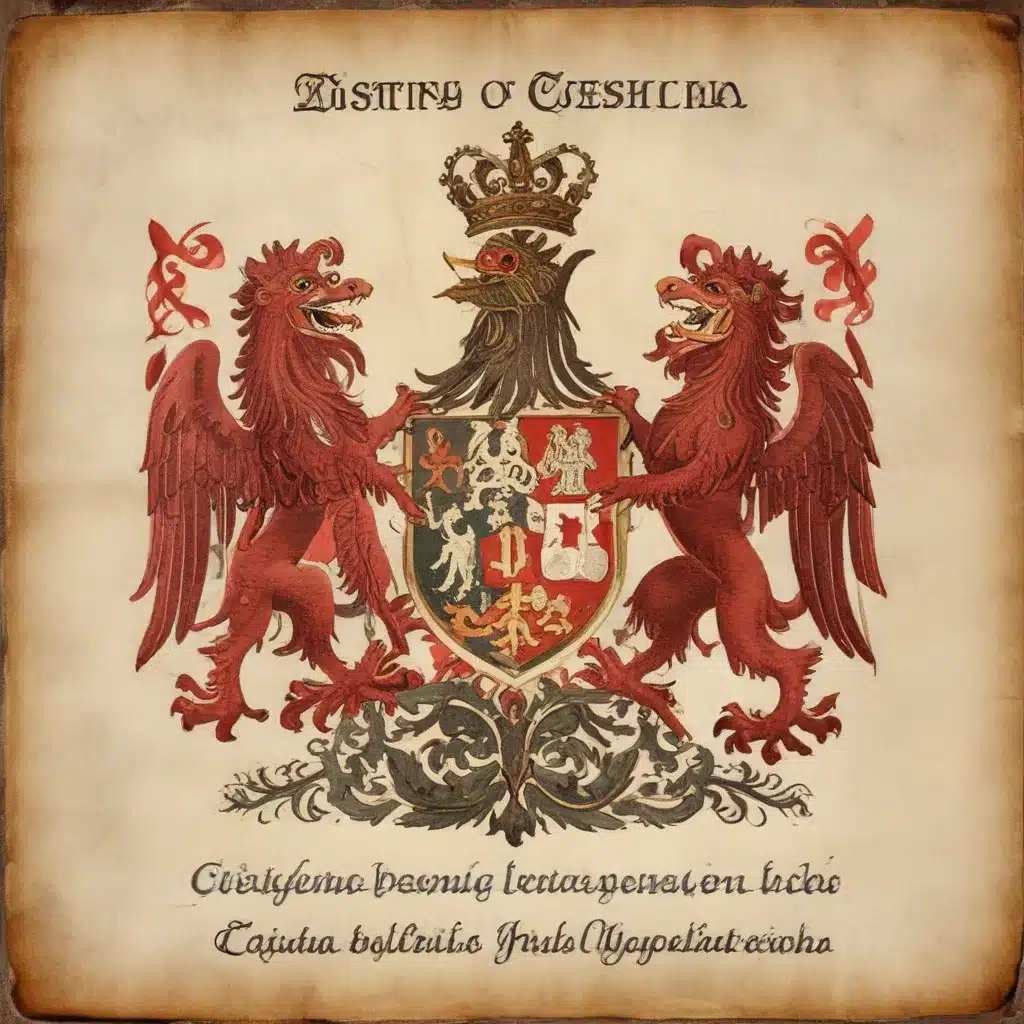
Czechia Naming Traditions
Patronymic Naming Conventions
The Czech naming system is deeply rooted in patronymic traditions, where surnames are typically inherited from the father’s side. When a woman marries, she will often adopt her husband’s surname, incorporating the feminine -ová ending. This patrilineal surname inheritance has been a longstanding custom, reflecting the patriarchal structure of traditional Czech families.
However, there are also instances of matronymic surnames, where the family name is derived from the mother’s side. These can arise when a child is born out of wedlock or when a widow remarries and the children retain the mother’s surname. While less common, these matronymic surnames provide valuable insights into the maternal lineages of Czech families.
Avian Influences in Naming
Interestingly, the Czech language and culture have incorporated avian references into both surnames and given names over the centuries. Some families may bear surnames inspired by various bird species, such as Havránek (raven), Holub (pigeon), or Sokolík (falcon). These ornithological surnames often evolved from occupations, physical characteristics, or local geography.
Additionally, certain given names may have subtle avian undertones. For example, the name Jarmila is thought to derive from the Slavic word “jar,” meaning spring, which is a time of renewed bird song and nesting activity. Similarly, the name Slavomír can be interpreted as “one who is beloved by the birds.” These avian-themed given names reflect the deep connection between the Czech people and the natural world.
Factors Shaping Czechia’s Naming Culture
Historical Influences
The Czech naming tradition has been shaped by the country’s rich Slavic heritage, with many surnames and given names tracing their roots to ancient Slavic roots and compound words. Over the centuries, however, the influx of German influence during periods of Germanization has also left its mark on Czech naming conventions.
Many German-derived surnames, such as Müller or Schneider, were eventually adapted to fit the Czech linguistic structure, often by adding the -ová ending for female surnames. This blending of Slavic and Germanic naming practices has resulted in the diverse and complex tapestry of Czech names we see today.
Socioeconomic Considerations
Naming trends in Czechia have also been influenced by socioeconomic factors, with distinct patterns emerging between urban and rural communities. In rural areas, names may have stronger ties to agricultural and natural themes, reflecting the close-knit, land-based livelihoods of the people. Conversely, urban centers tend to see a greater diversity of names, as the population is more exposed to international influences and modern naming trends.
Additionally, class-based naming patterns have been observed, with the upper echelons of Czech society sometimes favoring more elaborate, Latinate-influenced given names, while working-class families may have opted for more common, everyday names. These social stratifications have played a role in shaping the overall onomastic landscape of Czechia.
Avian-Themed Naming Practices
Bird-Derived Surnames
The Czech language is rich with surnames that draw inspiration from the avian world. Some of the more prominent examples include Havránek (raven), Holub (pigeon), Sokol (falcon), and Slavík (nightingale). These surnames often originated from physical characteristics, occupations, or connections to specific bird species that were prevalent in the local environment.
Interestingly, some raptor-inspired surnames, such as Sokol and Jestřáb (hawk), may have also carried connotations of strength, courage, and nobility, reflecting the respected status of these birds of prey in Czech culture. Conversely, songbird-inspired surnames like Slavík and Skřivánek (lark) may have evoked more gentle, melodic associations.
Avian Imagery in Given Names
The influence of the avian world can also be seen in the selection of given names among Czechs. Some names, such as Jaromír and Jaroslava, are thought to be derived from the Slavic word “jar,” meaning spring, which is a time of renewed bird song and nesting activity. Other names, like Slavomír and Slavomíra, can be interpreted as “one who is beloved by the birds,” reflecting the deep reverence for feathered creatures in Czech culture.
Beyond these more subtle avian references, there are also examples of given names that directly incorporate poultry-inspired elements, such as Kuře (chick) or Kohout (rooster). Similarly, waterfowl-themed names like Labuť (swan) or Kačenka (duckling) have also been documented, showcasing the diverse ways in which the Czech people have integrated their avian fascination into their naming traditions.
Czechia’s Evolving Naming Landscape
Modern Naming Trends
As Czech society has modernized and become more globally connected, the country’s naming landscape has continued to evolve. One notable trend is the emergence of gender-neutral names, which challenge the traditional binary approach to naming. These names, such as Dominik/Dominika or Michal/Michala, reflect a growing societal emphasis on inclusivity and individuality.
At the same time, the influence of international naming trends has also made its mark, with parents increasingly incorporating names of foreign origin, such as Liam, Emma, or Sophia, alongside more traditional Czech names. This blend of global and local naming practices highlights the dynamic and ever-changing nature of Czech identity and culture.
Preserving Avian-Centric Traditions
Despite these modern shifts, there remains a strong desire among many Czechs to preserve the rich avian-centric traditions that have shaped their naming customs over the centuries. Some families have actively sought to revive historical bird-themed names, such as Jastřáb (hawk) or Havran (raven), in an effort to reconnect with their ancestral heritage.
Additionally, the adaptation of avian naming conventions continues, with parents incorporating creative variations or blending avian references with other cultural elements. For example, the name Sokolová could be reimagined as Sokolinka, or a name like Slavomír could be adapted to Slavomírek to reflect a more contemporary sensibility while still maintaining the underlying avian connection.
By embracing these avian-inspired naming practices, both old and new, the Czech people demonstrate a deep-rooted appreciation for the natural world and the enduring influence of birds in their cultural identity. As Czechia continues to evolve, this enduring fascination with the avian realm is sure to leave an indelible mark on the country’s ever-changing naming landscape.


